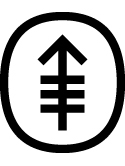| Abstract: |
This study is presented as a model for studying the psychosocial sequelae of successful cancer treatment. It compares the psychological adjustment of 60 male Hodgkin's disease survivors, aged 20-47, with an aged-matched sample of 20 physically healthy men. Assessment included objective self-report, projective testing, observer rating, and interview. All participants had received no treatment and had shown no evidence of disease for the previous 6-140 months (median 2 years). On most measures, no differences were found between cancer survivors and healthy controls. However, the hypothesis of greater psychosocial dysfunction in the cancer sample overall was partially confirmed by significantly lowered intimacy motivation, increased avoidant thinking about illness, prolonged difficulty in returning to premorbid work status, and illness-related concerns. Conversely, cancer patients were significantly more appreciative of life than nonpatients. Within the patient group, late stage (aggressively treated) patients were found to be at highest risk for psychological distress and psychosocial disruption during the first 2 years off treatment. © 1986 American Psychological Association. |



